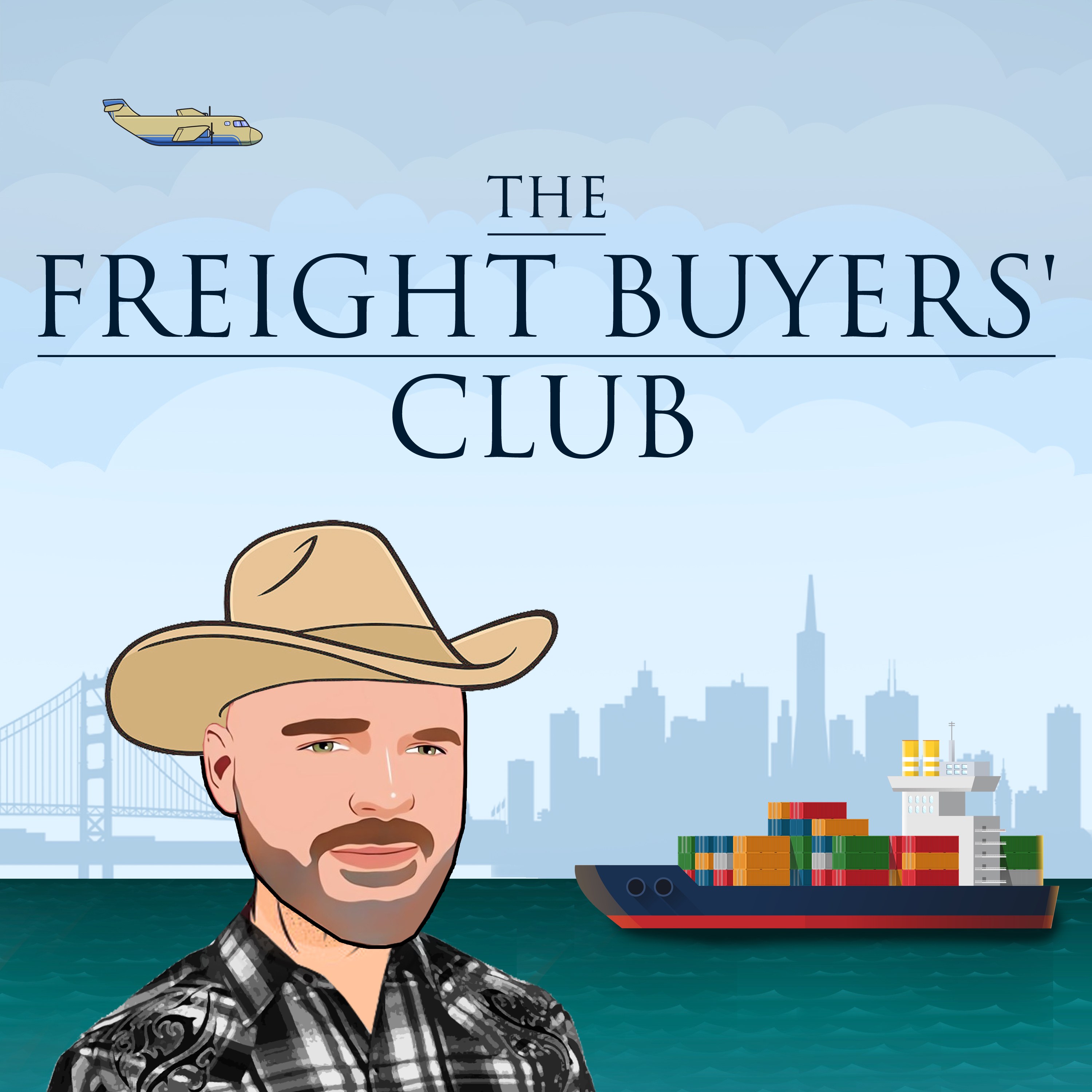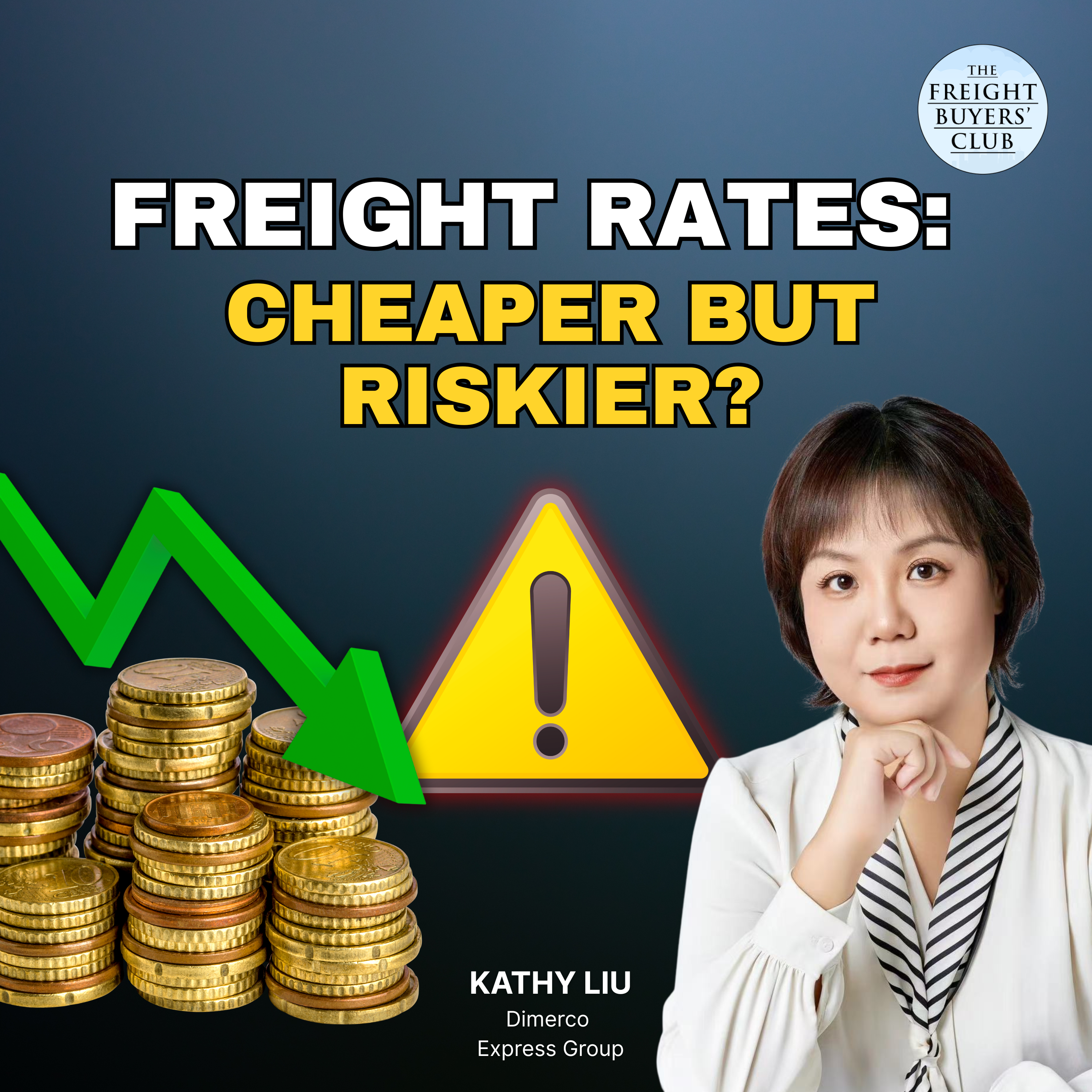Episode Transcript
[00:00:03] Speaker A: Later on we'll be examining what's going on with rates and I'll be trying to persuade you to make some forecasts about what's going to happen in 2026. But first off, the Trans Pacific and the latest White House policy due to shipping on the 14th of October. You know what it is? It's port fees. So As I said 14th of October, Chinese built ships face new fees when calling at US ports. These are US Trade Representative fees on Chinese owned, operated or built vessels. The size of the fee depends on the vessel category. Lars, I've simplified that to a degree. But just briefly, how are carriers reacting in terms of vessel deployments and planning?
[00:00:46] Speaker B: In a simple sentence, they're reacting exactly as you might expect.
And that entails a couple of things. It entails, if you look at all the major carriers, logically they are phasing out as many Chinese ships from the networks and replacing them with non Chinese ships. So simply a shuffling game. You already had a bunch of the major carriers out. The CMA was the first. But then you had a bunch of the other carriers following suit. Maersk have done. Hmm, have done. At least that's the one top of my mind simply saying they're not going to come cleaning surcharges.
So that was fairly expected.
There are a couple of other fallout effects. I think the largest effect we've seen so far is C span. Keep in mind C Span is not a carry. I mean they just, there's no just right. But they just own container ships. But being headquartered in Hong Kong, that would suddenly mean if you charter ships from them, they will be seen as Chinese ships. So C SPAN is just doing what everybody would expect. They're moving to simple, they're reflagging, likely about 100 chips. So hey presto, these ships are suddenly not Chinese anymore.
That was completely expected. The third thing also expected.
Heaty Shipping. I know everybody talked about Costco and Double ocl. They're the large ones. But there's Heaty Shipping, a small Chinese niche carrier, also having Pacific services into the U.S. they just announced one of our services is quite simply gonna shut down. So all of this playing out exactly as expected. The one I would say that is a little bit unknown.
How is Costco and double the economy so far?
What they've said is they're going to continue to operate as is and I wouldn't really expect anything less. You have seen them start a service from China to Mexico, not only in the US could we see a few more minor modifications like that? I would not necessarily put past them. That's what it looks like right now. Let me throw in a wild card there. Are we sure USTR would be implemented the way we think it is? The carriers have been bugging USTR for details because the USTR proposal, like, to be quite frank, every other thing that came from the US government is strong on headlines, not very strong on the nitty gritty details. There's been a lot of questions posed about some of the details. The latest letter that I've seen that came to some of the carriers and the World Shipping Council here about a week or so ago basically said from the ustr, we don't quite have all the details in place yet.
And there are two ways to read that. You can read it the way it is, they just don't have the details yet. Despite having months to have it worked out, that is what it is.
I would also not rule out that part of the interpretation to put into that might be that there would be negotiations ongoing in making minor modifications. So let's see how that one plays out.
[00:03:28] Speaker A: And anyone who's watching on YouTube or Spotify video, you can see the redeployment of Chinese built tonnage into and out of those US trades courtesy of Sea Intelligence. And the trend is pretty clear.
Carriers are getting these ships off the Trans Pacific. Lars, how does this affect the competitive balance on rates? Especially as relation to you mentioned Cosco on ocl, they're at a big disadvantage, right?
[00:03:56] Speaker B: I mean for COSCO and WCL this is a significant disadvantage. There were estimates made by the HSBC bank about a month or so ago that for Costco and double scale you're looking at an annual cost of one and a half billion dollars. This is not small potatoes. So they are clearly going to be impacted from a competitive perspective. See, from the perspective of all the shippers out there, this basically means they're not going to see any increased costs from usgr. Specifically, could you argue maybe they should see higher costs from Costco and double ocl? Well, I'll say good luck with that. There is no way Costco and OCO alone could come out and successfully increase rates if the rest of the carriers don't. I mean the market pricing wise is very competitive.
[00:04:39] Speaker A: We've seen big investments of the container shipping fleet. I mean, we've got a record order book at the moment.
A lot of these ships are coming out of China.
What does that do to their values? And what does it do in terms of ordering future vessels?
[00:04:53] Speaker B: Nothing.
No, I mean a couple of things. If you look at all the orders that's been placed just in the last few months after it was known that USTR came out, you can't really see any change. Keep in mind, USTR is not just on containerships, it's also another vessel. Has that changed the percentage of which orders goes to China? Doesn't go to China? Absolutely not.
Don't pin me exactly on it, but as far as I recall, if you look at Shipping Overall, about 80% of all ships in the world never call the U.S.
so when that is the case, why should we expect the order book to materially change to build more expensive ships?
That again should not really be surprising to anyone. Ustr, if you read into the detailed argumentation for it is very clear it's actually stated there explicitly also in the executive order covering that one and more initiatives is to bolster more vessel building in the us. But it was clear right from the start that USTR would do absolutely no such thing. What it potentially could do is move some ships like Seaspan to be flagged in other countries or moved elsewhere. But that this magicy would move shipbuilding away from China and to the U.S. not gonna happen. It's not. What is happening, Lars?
[00:06:06] Speaker A: Lines. Well, some lines I should say have said they'll try and absorb the cost, at least for now.
Is that sustainable or do you see that evolving into something where shippers end up footing the bill? Doesn't that always happen in the end?
[00:06:22] Speaker B: At the end it happens. But again, if you look at most of the carriers, many of them have just faced the Chinese ships out, so they offer, let's say for sake of argument, I take a Chinese ship away from the U.S. now I use it to Australia. Then I have a Korean ship that went to the us then my cost hasn't really increased. But there is no cost necessarily to pass through.


